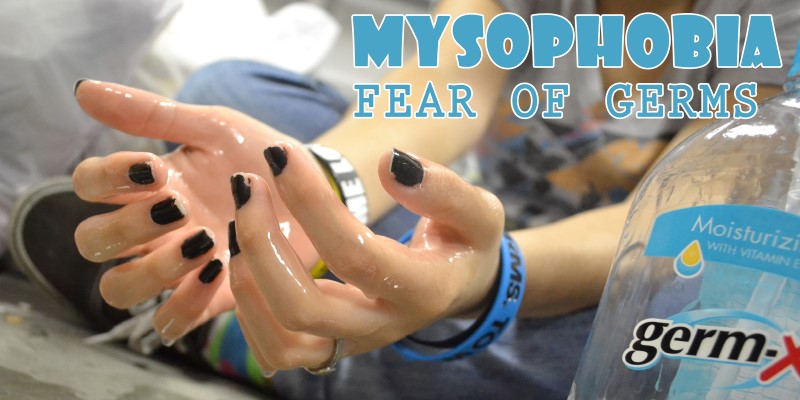Cleanliness and hygiene are obviously major essentials in our daily life. Any normal person would be a little more alert while visiting a hospital or a hospice. However, for those having mysophobia, these feelings are all over their mind and body constantly.
Mysophobia has been derived from Greek word “myso” which means germs. Mysophobia is signified by persistent and extreme fear and consciousness of germs and contamination. Mysophobia, also known as germophobia verminophobia, germophobia, bacillophobia and bacteriophobia, makes the person obsessed with cleaning and sanitation. The person having mysophobia is excessively concerned about being infected with germs and harmful substances. On the contrary, the situation possesses no risk at all as the person actually thinks it is. This kind of irrational and unreasonable fear and anxiety associated with such contamination is known as mysophobia.

Mysophobia is closely related with OCD (Obsessive Compulsive Disorder) as well. A person having mysophobia is extremely involved in sanitary habits like cleaning hands and washing constantly to get away with the risk of contamination of germs. This can take a severe form and disrupt even the daily chores of the person.
How Common Is Mysophobia?
Mysophobia is one of the very common phobias among people. However, it has been seen to occur alongside other mental health issues such as OCD, nosophobia (fear of having a specific disease) and hypochondria (extreme anxiety of one’s health). Even famous star celebrities like Michael Jackson and Megan Fox were reported to have been extremely fearful of germs and contamination.
What Causes Mysophobia?
Different causes known for mysophobia are:
A traumatic incident
Mysophobia has been majorly seen occurring with people who had some kind of major health issue in the past or someone who witnessed a loved one go through a health related trauma. The extreme fear of germs can be resultant of encountering such traumatic incident in the past, which has implanted the terror of acquiring contamination and infection.
Heredity and learnt behavior
Heredity has been closely related with occurrence of various kinds of phobias. People are more vulnerable to acquire mysophobia if someone from his/her family already had suffered the same fear previously. Moreover, it is like a learnt behavior one gets from the people who surrounds him/her. Seeing a guardian or elder excessively concerned of cleaning and getting contamination can easily influence the same behavior to develop in a person.
Obsessive Compulsive disorder (OCD)
OCD, specially cleaning related OCD and mysophobia can occur simultaneously. A mysophobic person can start having cleaning obsession or a person obsessed with cleaning can eventually develop mysophobia. The person who has developed an obsessive routine of cleaning, washing and sanitary habits gradually instills extreme apprehension for germs and microbes.
The Symptoms Of Mysophobia
Major symptoms that can occur with people having mysophobia are:
- Extreme and irrelevant fear of germs, bacteria and microbe contamination
- Frequent cleaning hands, body and place where he/she is staying
- Obsessed with buying cleaning products
- Complete avoidance of public places, especially public lavatories and crowded places
- Recognizing that the fear is irrational, yet not being able to control it ( except in children)
- Avoiding to share personal items such as towel, combs and food with other people due to the fear
- Panicking when unable to follow cleaning routine
- Physical signs such as sweating, feeling confused, shaking, fast heartbeat, dry mouth and muscle tension
When to Visit A Doctor?
Mysophobia can cause severe interruption in the daily chores. If the above symptoms have been seen for a time period over the extent of six months, one needs to get an expert advice from a doctor. Furthermore, mysophobia can occur alongside OCD which can cause serious depression in a person. For this, different treatment methods are required to bring the symptoms under control.
How Is Mysophobia Treated?
Therapies and medications would help to bring mysophobia under control. These are:
Cognitive Behavioral Therapy (CBT)
CBT is a one to one based therapy used to deal with the thought and behavior of a person. The therapist is focused on learning why and how the person feels anxious of germs and contamination. It is aimed at changing the negative and false beliefs surrounding the germs and health worries into positive ones. The therapist teaches different relaxation ways like breathing control and mental visualization exercises to control the inner fearful thoughts.
Medications
Medicines are also used to control the fear and terror. Anti-anxiety, beta blockers and anti-depressant drugs are commonly used by doctors to adjust the serotonin levels which is responsible for determining the temperament of a person